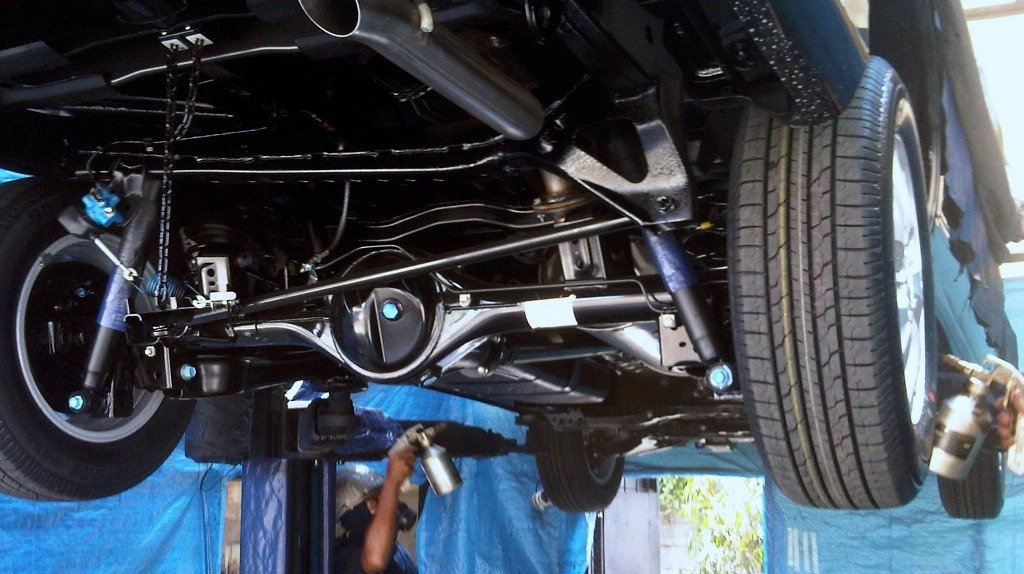Living in coastal areas has its own charm — the scenic beauty, the cool breeze, and the refreshing atmosphere. However, it also comes with challenges, especially when it comes to maintaining your car. One of the most significant issues faced by car owners near the coast is rust. Due to high humidity, salty air, and frequent exposure to moisture, vehicles in coastal regions are prone to corrosion and rust. To keep your car looking good and functioning properly, it is crucial to invest in the best anti-rust treatments. In this article, we will explore the most effective methods to protect your vehicle from rust in coastal areas.
Understanding the Problem of Rust in Coastal Areas
Rust is a common problem in coastal regions because of the presence of salt in the air and water. Salt acts as a catalyst for the oxidation process, causing the metal parts of a car to corrode faster than they would in non-coastal areas. Rust not only degrades the appearance of your vehicle but also compromises its structural integrity, leading to safety issues and expensive repairs. Preventing rust is, therefore, essential for maintaining the value and longevity of your car.
Top Anti-Rust Treatments for Coastal Vehicles
1. Underbody Coating
One of the most effective ways to prevent rust is applying an underbody coating. The underbody of a car is most vulnerable to corrosion as it comes in direct contact with water, mud, and road salt. Underbody coatings create a protective barrier that prevents moisture from reaching the metal. Typically, a rubberized anti-rust coating is applied to the chassis, wheel wells, and other exposed areas under the car. This treatment is especially recommended for SUVs and sedans frequently driven on coastal roads.
2. Waxing and Polishing
Applying a high-quality wax not only enhances the shine of your car but also forms a protective layer against salt and moisture. Regular waxing prevents salt deposits from sticking to the paint and forming rust. Polishing, on the other hand, smoothens out any imperfections in the paint, reducing the chances of corrosion. Make it a routine to wax and polish your car every few months, especially before and after the monsoon season.
3. Ceramic Coating
Ceramic coating is a modern solution for car owners looking for long-term protection against rust. This treatment involves applying a liquid polymer to the car’s exterior, which chemically bonds with the paint. The resulting hydrophobic layer repels water, dirt, and salt, making it an excellent choice for coastal areas. Although ceramic coating is relatively expensive, it lasts several years and significantly reduces the risk of corrosion.
4. Anti-Rust Sprays
Anti-rust sprays are affordable and easy to apply. These sprays contain rust inhibitors that create a thin, moisture-resistant film on the surface. You can use them on exposed metal parts, including the undercarriage, exhaust pipes, and even inside the engine bay. They are particularly useful for protecting hard-to-reach areas that are prone to rust.
5. Rust Proofing Paint
Another effective method is using rust-proofing paint, especially on parts prone to exposure, like the bumper, door sills, and fenders. Rust-proof paint contains corrosion-resistant compounds that form a protective coat. This paint is suitable for older cars or those showing early signs of rust, as it can halt further corrosion.
Maintenance Tips for Coastal Car Owners
In addition to applying anti-rust treatments, there are some practical steps to minimize rust in coastal areas:
- Wash your car regularly: Removing salt deposits is crucial. A thorough wash at least once a week during monsoon or when exposed to salty roads can help.
- Dry your car properly: Leaving moisture on the surface increases the risk of corrosion. After washing, dry your vehicle with a microfiber cloth.
- Inspect for rust spots: Regularly check the car’s underbody, door edges, and trunk for early signs of rust. Addressing small rust spots promptly can prevent them from spreading.
- Avoid parking near the sea: Direct exposure to sea breeze increases salt buildup. Whenever possible, park your car away from the shoreline or in a covered area.
- Apply anti-corrosion sprays periodically: Some parts may need reapplication, especially after long drives or exposure to seawater.
Professional Anti-Rust Treatment
If you live in a coastal city and want comprehensive rust protection, opting for professional anti-rust treatment is highly advisable. Car detailing shops offer specialized treatments like oil-based undercoating, zinc-rich primers, and multi-layer ceramic coatings. These treatments are applied using professional equipment, ensuring thorough coverage and longer-lasting protection.
Choosing the Right Treatment for Your Car
The choice of anti-rust treatment depends on your car’s make, model, and age. Newer cars with factory-applied rust-proofing might only require maintenance coatings like waxing or ceramic. Older cars, especially those with visible rust spots, will benefit from underbody treatments and rust-proof paint. Consider your budget, frequency of coastal travel, and climate when selecting a treatment.
Conclusion: Invest in Rust Prevention for Coastal Vehicles
Rust can significantly reduce your car’s lifespan and aesthetic appeal, especially if you reside in coastal areas. Taking preventive measures and investing in the right anti-rust treatments will save you from expensive repairs and keep your vehicle looking great for years to come. Whether you choose a ceramic coating or regular waxing, consistent maintenance is key to rust prevention. Protect your car today and enjoy worry-free driving, even in the challenging coastal climate.

